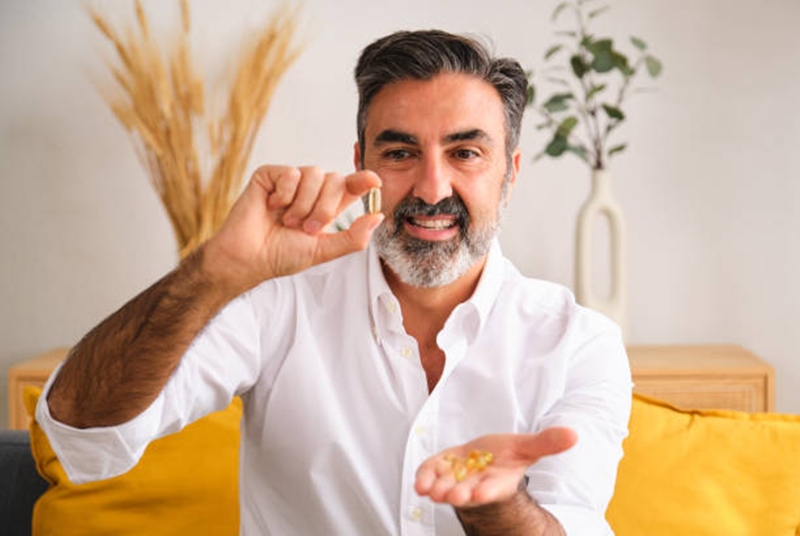One in three adults are at risk of not getting enough vitamin D, which is vital for good health, according to a new UK Study.
Vitamin D helps keep the body running smoothly affecting nerve and muscle function, inflammation and influences many genes that regulate the growth of cells.
It is also important for regulating the concentration of calcium and phosphate in the bloodstream and in promoting the healthy growth of bone.
Vitamin D prevents rickets in children and osteomalacia in adults, and together with calcium, helps to protect older adults from osteoporosis.
However many people get their main source of the vitamin from sunlight meaning over the winter months it is easy to become deficient as a result of the lack of exposure to sunlight. And the study by Boots found many of those quizzed were experiencing symptoms that could be linked to insufficient vitamin D levels.
The high street chain surveyed 100,000 people and found two out of three were suffering from tiredness and fatigue. More than a third (37%) admitted to spending minimal amounts of time outdoors leaving them open to being deficient in the vitamin.
But while a varied diet and healthy lifestyle remains key there is also a simple solution that Vitamin D supplements are available under the following different brand names:
Drisdol, Calciferol, cholecalciferol, 1,25-Dihydroxycholecalciferol, and ergocalciferol. Studies have shown that vitamin D3 supplements may be superior in raising the body’s vitamin D stores. There are many health benefits to vitamin D supplementation, but your doctor should use lab tests to recommend the amount of vitamin D you should take and which form.
Sunlight is the main contributor to vitamin D. As the days grow darker, we are less likely to be exposed to direct sunlight, which could impact our vitamin D levels.
It is recommended that people consider taking a daily vitamin D supplement between October and March, as most people will not make enough vitamin D from sunlight alone. It’s also recommended people do get outdoors as much as they can – there are so many physical and mental health benefits beyond supporting our vitamin D intake.
But why is vitamin D important and what can you do if you don’t get it from sunlight.
What is vitamin D?
Vitamin D is an essential nutrient which contributes to the normal function of the immune system and helps to regulate the amount of calcium and phosphate in the body, helping to maintain healthy bones, muscles and teeth.
What are the sources of vitamin D?
Sunlight is the main contributor to healthy vitamin D levels. However, vitamin D can also be found in a small number of foods, including oily fish, like salmon and sardines, red meat, egg yolks and fortified foods like breakfast cereals. Light-cultivated mushrooms are also one of the few natural plant-based sources of vitamin D, but only when they have been exposed to sunshine or ultraviolet B.
When should I take vitamin D supplements?
Since vitamin D is a fat-soluble vitamin – meaning it doesn’t dissolve in water – your body can most easily absorb it when you take it with food, especially fat-containing foods such as a glass of milk.
How do I know if I’ve got a vitamin D deficiency?
Some people who are vitamin D deficient might experience symptoms such as tiredness, and general aches and pains. If you notice any of these symptoms, or are worried about your vitamin D levels, it’s important to speak with your doctor to have your levels checked but to also rule out other underlying causes.
Do I need normal strength or max strength vitamin D?
Everyone over the age of one year should have 10 micrograms vitamin D per day. This includes pregnant and breastfeeding women and people at risk of low vitamin D. Normal strength vitamin D should be sufficient for most of the population.
What happens if I take too much vitamin D?
Taking too many vitamin D supplements over a long period of time could cause too much calcium to build up in the body, which is known as hypercalcaemia. This can weaken the bones and damage the kidneys and the heart.
However, it’s important to note that while you can’t overdose on vitamin D from sunlight, always protect your skin during prolonged sun exposure to prevent skin damage and reduce the risk of skin cancer by following sun safety guidelines.
Inputs with Elaine Blackburne, SurreyLive





